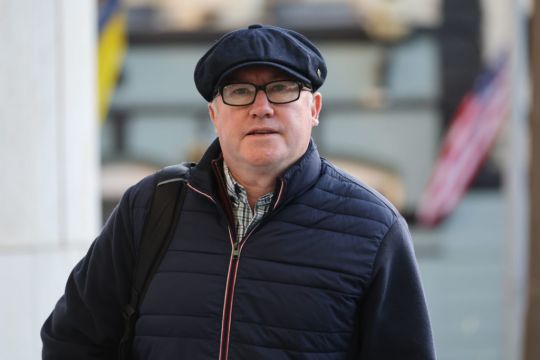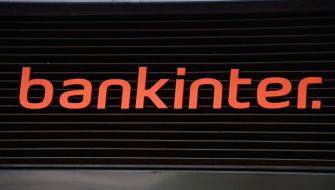Former solicitor Michael Lynn has told his multi-million euro theft trial of “off the book” loan arrangements he had with bankers, including former Irish Nationwide boss Michael Fingleton.
Mr Lynn told Dublin Circuit Criminal Court on Tuesday that he had “off the books” arrangements with bankers in relation to loans, which involved Mr Fingleton having a stake in his Portuguese development and involved other bankers getting discounts on apartment purchases.
Mr Lynn said he met with Mr Fingleton in the Berkeley Court Hotel in Dublin in 2006 to sign a “memo of understanding” in relation to the use of Irish Nationwide funds in exchange for which Mr Fingleton would have a stake in the third stage of Mr Lynn's apartment development in Portugal, called Cabanas 3.
Evidence
Continuing his evidence to Paul Comiskey O'Keeffe BL, defending, Mr Lynn said the memo of understanding, or contract, was created by a lawyer in England.
“The use of funds with Irish Nationwide started around 2005 with Michael Fingleton,” he said, adding it was “around 2004, 2005”.
“I was introduced to him. I had various conversations with him about developments abroad. He knew Portugal fairly well and understood what I was trying to achieve.”
When asked if any other banker agreed to take a stake in a development, Mr Lynn said no. He named two bankers he could recall who he said received discounts in respect of apartments, including Ciaran Farrell of Permanent TSB who has given evidence at trial.
“The rest was all understandings in relation to the provision of funds to allow the funding of development properties abroad on the basis it would be short term money, a year or two years or three years depending on the type of development it was intended for,” Mr Lynn said.
He said Mr Farrell was benefitted with an “artificial deposit” on an apartment in Portugal, which he didn't have to pay. Mr Lynn said there would be a record of this transaction in a ledger in Portugal.
He said the construction of the apartment in question never went ahead because “in 2007, everything essentially collapsed”. He said they tried to keep things going in Portugal “as much as we could” but that after Lehman Brothers collapsed in 2008, “we were finished”.
Mr Farrell has denied at trial that he received any such benefit on an apartment in Portugal.
Mr Lynn said the “off the book documents” were in the form of emails sent to individual bankers. He said he used the email addresses associated with his property development companies, Kendar Holdings and Kendar Global.
He agreed there was no other form of off the book documents, but that “many conversations would have taken place”.
'Cementing relationships'
In relation to building relationships with bank officials, Mr Lynn said: “We're talking cementing relationships, receiving money for a particular purpose, using it for a different purpose and repaying the money.”
Mr Lynn (55) of Millbrook Court, Redcross, Co Wicklow is on trial accused of the theft of around €27 million from seven financial institutions. He has pleaded not (NOT) guilty to 21 counts of theft in Dublin between October 23rd, 2006 and April 20th, 2007.
It is the prosecution’s case that Mr Lynn obtained multiple mortgages on the same properties, in a situation where banks were unaware that other institutions were also providing finance.
The financial institutions involved are Bank of Ireland, National Irish Bank, Irish Life and Permanent, Ulster Bank, ACC Bank, Bank of Scotland Ireland, and Irish Nationwide Building Society (INBS).
Mr Lynn gave evidence at length on the setting up of his property development companies, Kendar Holdings Limited and its entities abroad, as well as Overseas Property Law – a law company that offered advice to Irish purchasers buying property abroad with Kendar.
He said that he started spending more and more time abroad engaged in his property development business.
He said that in 2005, he spent about 160 to 180 days outside of Ireland, in 2006 he spent about 200-220 days abroad and that in 2007, he spent about 200 days abroad up to September of that year.
In relation to his legal executive Liz Doyle, Mr Lynn said she had his authority to sign his name on a number of bank documents, including loan offers, acceptance of loan offers and undertakings.
“Just to be clear, that's not right, it's not correct,” he said, adding this should have been done by power of attorney. “But it did happen.”
He said Ms Doyle did not have his authority to sign his signature on Kinsella Mitchell documents – the external accountants for the practice. He said he did not understand why she would say that she did.
He said solicitor Fiona McAleenan, who has also given evidence at trial, took on conveyancing in the practice, particularly during a period when there was no solicitor in the practice to do conveyancing. “Fiona would have seen all the post coming in, she would have seen all the things that happened, day in, day out,” he said.
Ms McAleenan has repeatedly told the trial she did not do any conveyancing in the firm.
In relation to undertaking-only mortgages, Mr Lynn said it was unsecured. “It's bridging,” he said, adding that the statement of affairs provided to the banks outlining his property developments abroad provided the banks with the comfort of understanding what the money would be used for.
When asked about the risk to himself, Mr Lynn replied: “They knew I was a practising solicitor and I would lose my practice and my livelihood. In that regard, what happened in 2007 is precisely what would happen.”
“In 2023, when you hear someone speaking about unsecured lending, bridging finance, facilities for assets abroad, it has to be remembered we're talking about 2004-2007, where deregulation was occurring on an unsolicited basis,” he said.
By deregulation, he meant “the banks, the financial institutions wanted to make sure they could get the money out the door”, Mr Lynn said.
“The more they could get out the door, the higher the value for the bank,” he said.
Mr Comiskey O'Keeffe asked Mr Lynn: “From the time of your first loan in 1998/1999 up until 2007, you gave undertakings but never registered a single mortgage in favour of the bank?”
“I think I registered one,” Mr Lynn replied.
When asked if during that period any bank sought to repossess, he said: “Absolutely not”.
The trial continues before Judge Martin Nolan and a jury.







